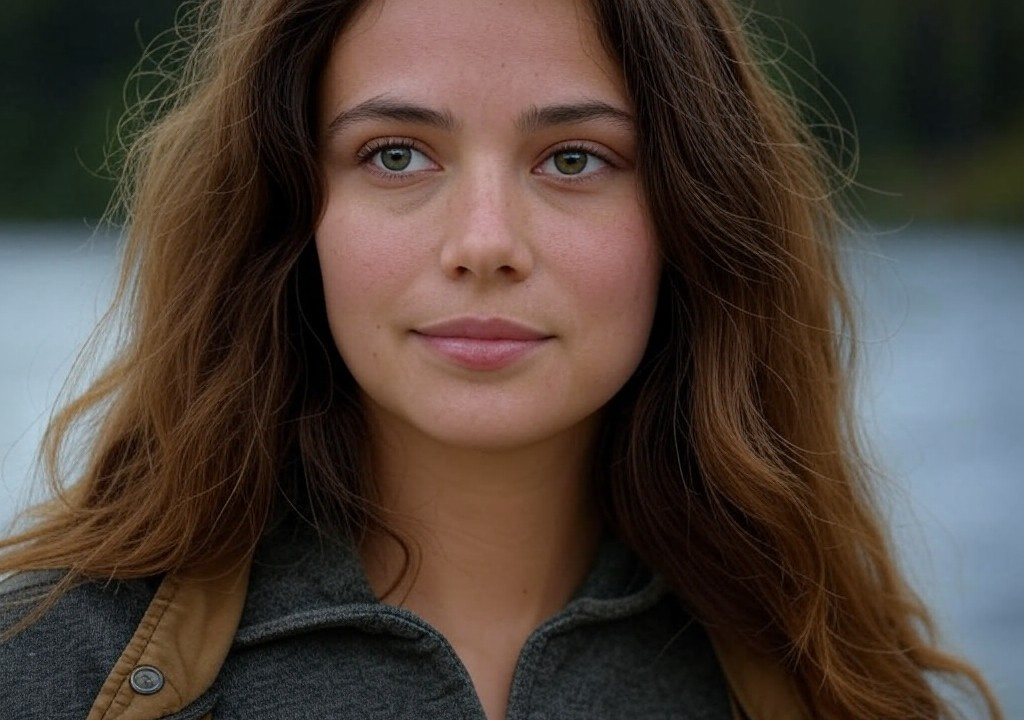I’ve always believed that falling in love with something—or someone—isn’t a bolt-of-lightning kind of thing. It’s more like dipping your toe into an ice-cold mountain lake: slow, deliberate, and, at times, a little unnerving. You’re not sure it’ll be worth it until you’re waist-deep, breathing in that crisp air, and grinning like a fool because, somehow, you feel alive in a way you didn’t before. That’s how I fell in love with my biggest passion—storytelling—and how it continues to pull me deeper even today. But, ironically, it started not with words, but with water.
A Lake, a Boat, and a Family Full of Talks
Growing up on the shores of Lake Coeur d’Alene, storytelling was sort of inescapable. My family’s resort played host to a revolving door of strangers, each with their own quirks, accents, and fascinating backstories. Every night, those backstories would surface around campfires or folding tables, marshmallows roasting above crackling flames as guests shared travel tales and life advice like they were currency. As a kid, I soaked it all in like a sponge—part National Geographic docuseries, part daytime soap opera.
My mom had this uncanny ability to draw people out, turning surface-level conversations into miniature TED Talks about someone’s biggest heartbreak or wildest adventure. (If only reality TV producers had recruited her, Bravo wouldn’t stand a chance.) Watching her weave a web of connection with total strangers taught me something: stories aren’t just entertainment. They’re how people make sense of themselves and the world. That lesson stuck with me.
But those early listening sessions didn’t exactly scream “future writer.” Mostly, they inspired me to play resident town gossip—I’d run off and “edit” other people’s stories, mixing truth with fantasy until everything sounded way juicier than it was. Did the retired professor in Cabin 7 really climb Mount Kilimanjaro to propose to his wife, only to be rejected mid-hike? Probably not. I added that part because it made the punchline land better.
Turns out, there’s a fine line between harmless embellishment and flat-out lying, but, hey, we all have to start somewhere.
Rediscovering Passion… Somewhere between the Pines
Like a lot of young adults who think they know exactly where they’re headed, I lost sight of that spark somewhere along the way. By the time I went off to college, my future was all about glaciers, wildlife, and forest demographics—not tales of heartbreak and triumph. I majored in Environmental Studies at The University of Montana, convinced the only stories worth telling were nature’s—ones scratched in tree bark and painted across the sky in Northern Lights.
Spoiler: If you’re ignoring your creative side for a decade straight, it’s kind of like ignoring laundry. Eventually, everything will start to stink.
There was a pivotal moment during a field study in Glacier National Park when something inside me clicked. As I sat beneath the pine canopy scrawling observations into a battered notebook, my notes twisted themselves into something unexpected. The facts of the landscape gave way to something looser, more personal. Before I knew it, I wasn’t cataloging native lichen species anymore—I was writing about what the view felt like, the way the cliffs reminded me of my dad’s stubborn streak, or how the wind sounded like the collective sigh of every choice I’d avoided.
In hindsight, it was never the environment I fell in love with. It was the act of interpreting it. Of connecting invisible dots between what I saw, what I felt, and where my own narrative fit. That notebook taught me something you’d never learn in a lecture hall: if passion doesn’t tug at something vulnerable and raw inside you, it isn’t passion. It’s just a passing hobby.
Writer’s Block Is Relationship Drama, Just Without the Texts
Like most people just out of a complicated relationship (mine with the rigid structure of academia), I turned to storytelling on a whim. At first, it was a game of trial and error: submitting half-baked essays to literary magazines, posting deeply personal anecdotes on Tumblr (yeah, I know), even writing cheesy Yelp reviews with way too much subplot. But trying to reconnect with something you’ve neglected for years is awkward—like texting an ex and starting with “Hey… so I was thinking about that time we went to the pumpkin patch in 2014.” Painfully specific, borderline pathetic, and a little hopeful.
Thing is, passion doesn’t always respond immediately. When writer’s block hit—because it always does—it felt personal. I treated each false start like a bad date: long sighs, some melodramatic declarations (“I’m just not good enough for this!”), and possible ice cream therapy. Over time, though, I realized writer’s block wasn’t rejection. It was part of the process.
If you’re ever stuck in your passion—whether it’s writing, sculpting, or your enthusiasm for becoming a competitive dodgeball superstar—do me a favor. Imagine it’s a relationship. There will be moments of euphoria (hello, new project glow!), moments of resentment (“I gave you everything, and you repay me with missed deadlines?!”), and quiet lulls in between. The key is simply to keep showing up. Even if you’re sitting in front of a blank page—or dreading a workout playlist—you’re still there. Sometimes that’s enough.
What Storytelling Taught Me About Love (The Real Kind)
They say you write what you know, but storytelling taught me far more than I ever knew going in. Take relationships, for example. What’s every compelling story about? Conflict, resolution, growth. Sound familiar? If you’ve ever powered through a fight with your partner that makes you want to reenact every Taylor Swift breakup anthem, you probably already know: resolution isn’t just about who “wins.” It’s about creating meaningful arcs together.
That’s the gift storytelling gives relationships. It’s all about perspective. Your disagreements aren’t just squabbles; they’re plot points. That weekend getaway you planned? Pure character development. Even the humdrum monotony of arguing over which frozen pizza to buy can be a subplot—a reminder that sometimes the mundane threads in the story are what hold it together.
And perhaps most importantly, storytelling taught me that relationships, like great writing, need editing. Trim the unnecessary angst. Highlight the vulnerable conversations. And above all, give both characters room to evolve. No one wants to read—or live—a story that's all fluff, no substance.
Falling (Still Falling)
Landing on your passion can feel like déjà vu—it hits you with both the vexing irritation of “why didn’t I see this earlier?” and the undeniable joy of, “I’m home.” Writing is still hard. There are days when entire paragraphs read like hieroglyphics, and my coffee budget borders on criminal activity. But through every challenge, I’m reminded why I love it the same way you love someone who knows every word of an embarrassing inside joke—and still loves you, too.
The thing about passion, like love, is that it’s not static. And it’s not one grand Hollywood moment where someone shouts your name in the rain (though that’d be a vibe). Instead, it’s about showing up, listening, and staying curious, even when it scares the hell out of you.
So here’s my advice: let your passion look messy sometimes. Lean into the blank spaces where you think you aren’t good enough yet. And above all else, trust the process—whether you're falling in love with someone, or simply with your own story.




















